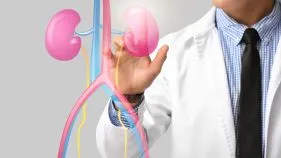
Top 3 Nephrologists in Mumbai – Dr. Sandip Prabhakar Bhurke
Top 3 Nephrologists in Mumbai – Dr. Sandip Prabhakar Bhurke
Comprehensive Kidney Health & Transplant Care
Welcome to Prabhakar Bhurke Clinic, a trusted center for specialized kidney care in Mumbai. Led by renowned nephrologist and transplant physician Dr. Sandip Bhurke, our clinic is committed to providing expert diagnosis, treatment, and prevention of kidney diseases with a holistic, patient-centric approach.
If you are seeking the best nephrologist in Mumbai for chronic kidney disease (CKD), acute kidney conditions, hypertension, renal transplantation, or dialysis management, we offer advanced, personalized care tailored to your needs.
Why Choose Prabhakar Bhurke Clinic?
✅ Expert Nephrology Care: Dr. Sandip Bhurke specializes in chronic and acute kidney conditions, ensuring the best treatment outcomes.
✅ Advanced Dialysis & Transplant Support: Personalized care for hemodialysis, peritoneal dialysis, and renal transplantation.
✅ Hypertension & Kidney Disease Management: Expert treatment for high blood pressure, including pregnancy-related hypertension.
✅ Holistic Kidney Health Approach: Integration of diet, lifestyle modifications, and metabolic management to improve well-being.
✅ Comprehensive Kidney Stone & UTI Treatment: Effective management and preventive strategies for recurrent kidney stones and urinary tract infections.
✅ Collaborative Multidisciplinary Care: Seamless coordination with other specialists for comprehensive kidney care.
Our Specialized Kidney Care Services
1. Chronic & Acute Kidney Disease Management
- Early diagnosis and personalized treatment plans.
- Prevention strategies to slow CKD progression and avoid complications.
- Management of electrolyte imbalances and acid-base disorders.
2. Hypertension & Kidney Health
- Specialized care for kidney-related hypertension and high blood pressure.
- Treatment for pregnancy-related hypertension and complex cases.
- Lifestyle modifications and personalized medication plans.
3. Kidney Stones & Urinary Tract Infections (UTIs)
- Advanced diagnosis and treatment for recurrent kidney stones and UTIs.
- Preventive strategies to reduce recurrence.
4. Dialysis & Renal Transplantation
- Comprehensive care for hemodialysis and peritoneal dialysis.
- Expert evaluation and management for renal transplant candidates.
- Post-transplant care for long-term kidney health.
5. Metabolic & Lifestyle Management
- Addressing underlying metabolic conditions like diabetes, obesity, and lipid disorders.
- Personalized diet and lifestyle plans to support kidney health.
Meet Dr. Sandip Bhurke – Leading Nephrologist in Mumbai
Dr. Sandip Bhurke is a highly experienced nephrologist and transplant physician specializing in a wide range of kidney-related conditions. His approach focuses on early diagnosis, advanced treatment, and holistic patient care to enhance kidney function and overall health.
At Prabhakar Bhurke Clinic, Dr. Bhurke and his team are dedicated to delivering the highest standard of kidney care with personalized and preventive treatment strategies.
Book an Appointment Today!
If you or a loved one are facing kidney-related health concerns, don’t wait! Early intervention leads to better outcomes.
Take the first step toward better kidney health with Dr. Sandip Bhurke – one of the top 3 nephrologists in Mumbai!


